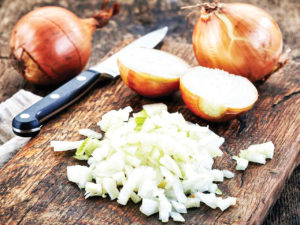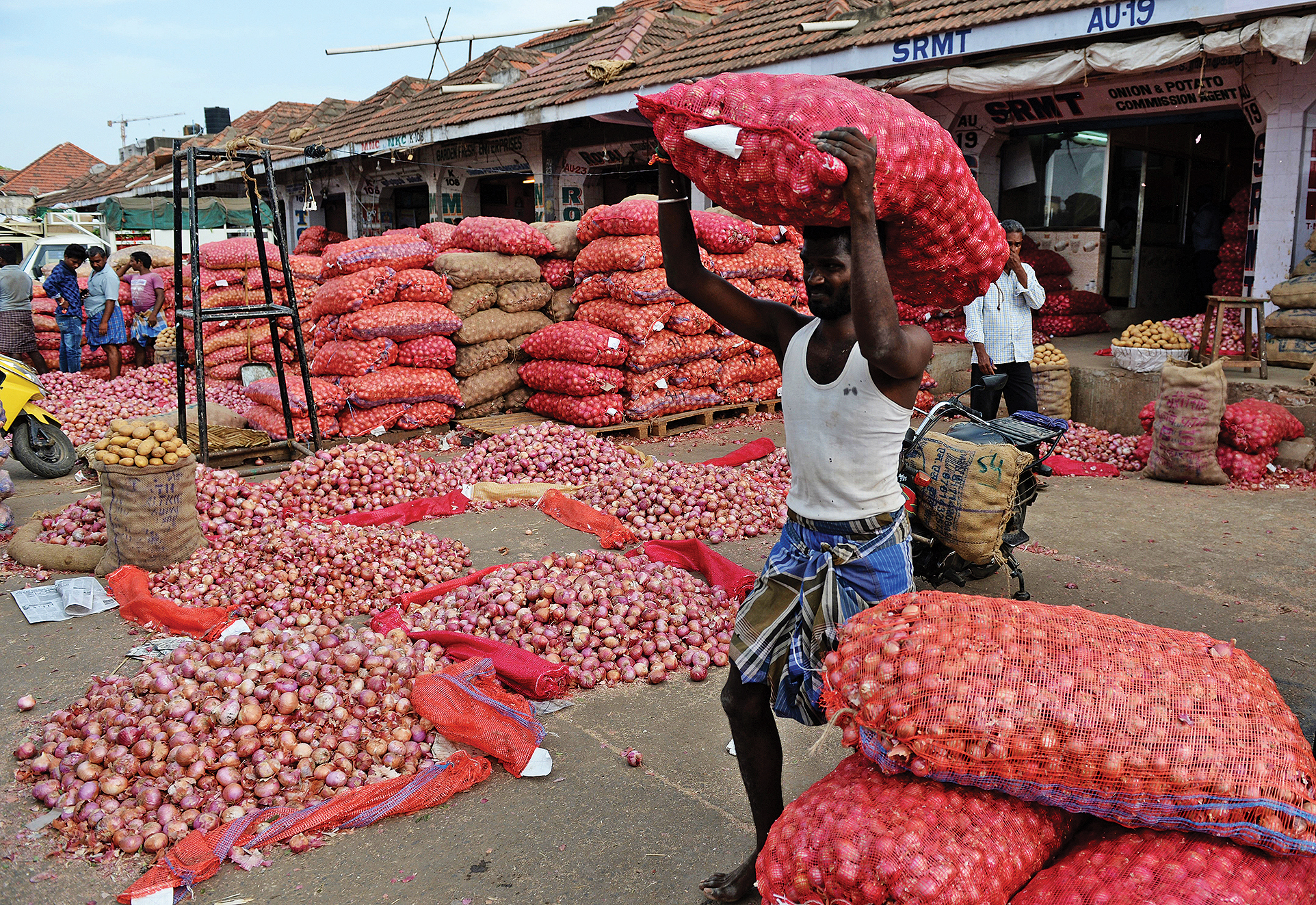Despite low demand during Navaratri, high prices of the kitchen essential can bring tears to the eyes of politicians in the runup to elections
Amidst the upcoming state elections in Maharashtra, Haryana and Delhi, the surge in onion prices is bringing political tears in these states. Both the Centre and the state are making every possible effort to lower the prices of the bulb, fearing this issue can lose them an election. They are no doubt relieved that during Navratri, a lot of Hindus fast or avoid onion in their dishes.
The politicians’ fears are not unfounded. In India, elections have been won and lost over the price of onions. It is said that in 1998, during Delhi state election, Sushma Swaraj had lost due to the skyrocketing price of onions. Hence no one fears the present situation more than the politicians. That is why both the Centre and the states are coming up with new schemes to lower the price of the bulb.
Union Minister Ram Vilas Paswan in a press conference said that out of 50,000 tonnes of onion stored in the buffer stock, 15,000 tonnes have been taken out from storage to lower the price of onions, 35,000 remains. According to reports, the maximum price of the bulb was found to be Rs 50-60 per kg in a few parts of the country
According to a Business Today article, trade data shows that prices of the bulb have shot up to Rs 70-80 per kg in the Capital. Paswan in the same conference has said that Delhi has been asked to lift onions from the buffer stocks to boost supply.
To give relief to consumers, central agencies Nafed and NCCF have been selling onions from the buffer stock at Rs 22-23 per kg whereas Mother Dairy’s Safal stores are selling at 23.90 per kg in the national capital.
Kejriwal in another press conference said that he has flagged off 70 mobile vans, and 400 fair price shops across all constituencies of the national capital to sell onions at a subsidised rate of Rs 23.90 per kg. A person can get 5 kg onions per day from either the shop or the van, no identity proof being required.
“We are directly putting into the market whatever has been procured from the Centre. Two Delhi government officials will visit Nagpur to examine the quality of onions and to ensure supply of good-quality onions to Delhi,” Kejriwal said, adding that after the first five days, the procurement of the onion stock will be reviewed as per requirement.

In his speech at the press conference, Kejriwal also said that he is keeping an eye on the black market and if anyone (either wholesaler or retailer) is found to be hoarding the vegetable, appropriate legal action will be taken against him.
The Newslaundry correspondent went to Azadpur Mandi to find out the ground situation and here is what we found:
Akhil Gupta a member of Potato Onion Merchant Association said, “The reason behind the surge in onion prices is due to the untimely rains in South India. Every year during this time we get the bulk supply of onions from the southern part but this year due to the rains after August which was supposed to be the harvesting season (September-October) the onions got rotten in the field itself as a result of which we are using the stored onions which we get from Maharashtra and Bihar in the month of April-May. It is the same stored onions which we are selling to the market now but the stock is limited and hence the price hiked.”
He assured that the price will now decline because from November the supply of fresh onions comes from Rajasthan and Maharashtra.
“The rate should not further rise, the government has put a ban on the export of onions and hoarding as well. A wholesaler cannot keep above 50 tonnes and a retailer cannot keep more than 10 metric tonnes. The present price of the onion is between Rs 28 and 35 per kg, 15 days ago it rose up to 70 per kg,” he added.
Rajendra Sharma, general secretary of POMA and president of the onion wing in Azadpur Mandi said, “The demand of the bulb depends upon the rate. If the rates are normal then the demand for onions from Azadpur Mandi is approximately 1,500-2,000 tonnes. The prices are high right now so demand has slumped to 700-800 tonnes”.
He added, “The low price of onion at the fair price shop does not affect them for two reasons; one, there are only limited fair price shops in Delhi and second, the middle class do not have the time stand in long ques to get cheaper onions”.
Rajkumar Gupta while buying onions from Azadpur Mandi said that he was buying onions at Rs 44 per kg and but to get the best quality one has to pay Rs 60 per kg. Earlier he remembers paying Rs 10-12 per kg in January. “Due to the high price, we are now buying fewer onions,” he rued.





